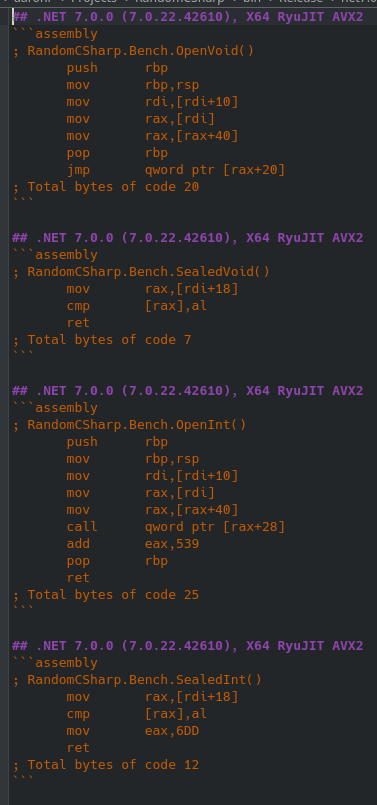Access Modifiers in C-Sharp [Answered]
Which access modifier take precedence during runtime? The access modifier at the class level, the method level or the field level? Do the access modifier at the class level override all the access modifier for it's members? Is there a precedence being taken place? etc... etc....
14 Replies
What does u mean by "restrictive" what's considered a class member that is restrictive?
Oh nvm, I think I get what u mean
How does this work in a non-static context?
for example
How can a program outside of an assembly invoke Method() if Utilities can't be instantiated outside of it's assembly?
oooooooooh
public and internal would mean the same thing there
they are just both allowed
Ok, so the "public" access modifier in method is useless? Does that imply that method will never be invoked outside of it's assembly even though the public keyword exists because it's access modifier is less restrictive than it's class access modifier?
Ah I see I see
So if I don't specify any access modifier for a class's member, will all the class's member "inherit" from class access modifier or will it just default back to internal regardless of what access modifier the class has?
So they'll just default to internal?
???? I don't understand, so class members will just default to private?
Wait wtf, there's different default access modifier depending for types and members?
That's quite complex....
I thought all types and members have a default access modifier of "internal" regardless of if they are nested or not
Yeah but I'm saying what would the default be if we don not explicitly specify a access modifier? If we just omit the access modifier in this method for example
Like so
will the method have a internal access modifier or will it just default to private access modifier?
This contradicts with other info I get, because I've been told that all access modifiers are, by default, internal
Ah ok, I think I'm starting to get it now
Does access modifier have an impact on performance?
For example, will a public class run slower than a private class?
Does it affect performance at all?
I'll just set it to the most restrictive as reasonable, the more restrictive the more I can protect the integrity of my code
integrity as in prevent unintentional misuse of code
Using the code the way that it was not intended, restricting how my code can be used such that it fits within the context that I want it to be specifically used
Yeah I just saw a video about sealed in Nick Chapsas
Apparently sealed gives a huge performance boost, holy shit one of his benchmarks for sealed classes was 1000x faster than the non-sealed class
and it also promotes code integrity as well, so that's a bonus 😄
Can you link to that? Because the performance boost for sealing classes is very small
Nick Chapsas
YouTube
Why all your classes should be sealed by default in C#
Check out my courses: https://nickchapsas.com
Become a Patreon and get source code access: https://www.patreon.com/nickchapsas
Hello everybody I'm Nick and in this video I will explain why you should be sealing all your C# classes by default. We will take a look at the functional aspect of the sealing feature and then take a look at the perform...
At some point in the video he had a benchmark with 1000x increase, I can't remember where but it was pretty damn impressive
Yeah, I heard at some point in the video he was using .NET RC 2 as well
Which like u said, shouldn't be possible, not sure why he said that
Maybe he has some exclusive early access before each RC comes out?
it does reproduce
also got some disassembly
(it doesnt reproduce to the thousands range though...)
yeah he says rc2
i think
¯\_(ツ)_/¯
it's possible its a local build
ah
the sealed versions get inlined

cc, since you were wondering what was up here
I didn't watch the video yet...I am mainly interested in seeing the 1000x result.
i did the same benchmark
its just calling a single method
the "1000x" is 8ns to .008 ns
likely not a real 1000x
.008 ns is getting into the realm where we can't reliably actually measure that granularity with accuracy, at least to my understanding
that is what i mean
✅ This post has been marked as answered!